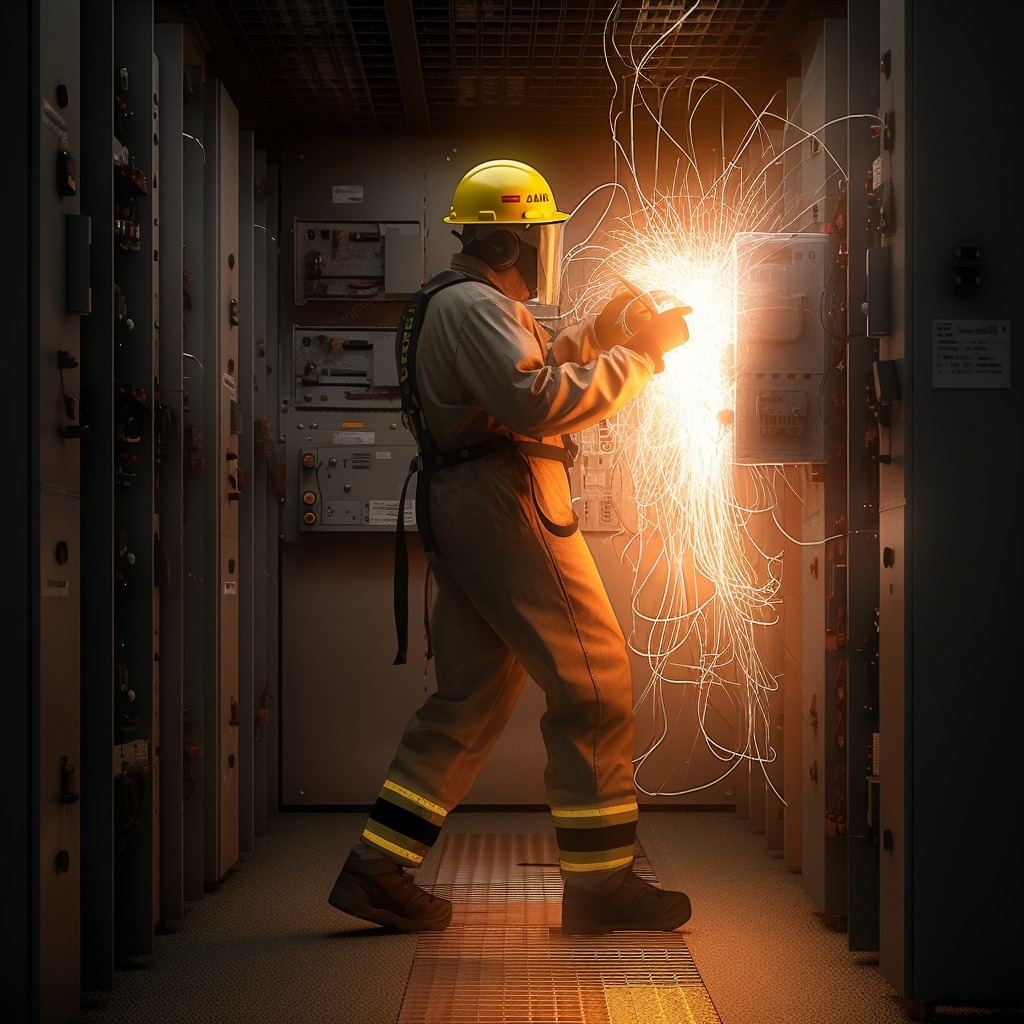


We get a call at least once a month from a frustrated customer with the same story.
“I was supposed to have my final inspection today but now the inspector is telling me I need a Special Inspection. Can you guys help me out? The owner wanted to move in last week and now I am in deep trouble”.
The answer is yes, we can help them, and we do but, what we need to focus on is educating contractors and owners so they can anticipate this and avoid the last-minute fire drills. The rules for Special Inspections, written by the City of Phoenix and other Jurisdictions, are well defined and not up to interpretation. There are several paths to get there, and C3 Engineering can help at any phase of the project from bid to closeout.
In its simplest terms, an Electrical Special Inspection is a requirement, in addition to a standard inspection performed by a City Inspector, to assure electrical systems are ready to energize, are safe and provide all required protection as required by building code and the design documents. The City requires providers such as C3 Engineering to demonstrate a high level of knowledge and experience to perform the inspections and testing required.
To put things into perspective, let’s discuss the logic and reasoning behind special inspections. All Jurisdictions have the same goal in mind, (hint: it’s not to make your life miserable or to take your money) their primary goal is to make sure that buildings and other structures, being built in their jurisdiction are safe to the public and to those that work, stay, or play in those spaces. Although most of the inspectors are very qualified and capable, there are just some things that are better left to the professionals. In addition, there was an unfortunate electrical accident that caused serious injury many years ago, and all involved committed to preventing a similar incident from ever happening again. And, as a result, The City of Phoenix Special Inspections program was created.
In accordance with the City of Phoenix “Special Inspection and Observation Manual” the following equipment requires a special inspection.
Special Observation and Inspection Manual
Ground fault protection systems, switchboards, panel boards, motor control centers and other equipment rated 1000A or more, or over 600 V, transformers rated 300KVA or more 3-phase, conductors for equipment rated 1000A or more, or over 600V, emergency and standby power systems.
Many Engineers will include a note on the drawings that identifies the need for a Special Inspection but not all. The contractor is expected to know when they are required. Of course, the time to identify this is when you are bidding on the job. An unexpected delay and cost that was not in your bid does not make for a good day. Any of us at C3 are more than happy to review your drawings for you during the bid process and identify any equipment that requires a Special Inspection.
Now let’s discuss who is responsible for what.
Typically, there are five entities involved in this process. In some cases, one person may be able to fulfill the responsibilities of two or more entities. In many cases some of these steps are overlooked and not performed. But the following is the letter of the law. C3 Engineering can fulfill the duties of both the Registered Engineer and the Special Inspector.
Project Owner
Notify the Registered Design Professional in Responsible Charge (RDPRC) in the event a Designated RDPRC chosen to provide the special inspection services.
Registered Design Professional in Responsible Charge
1. Identify the need for special inspection services. The project plans that are submitted to the Building Official shall clearly indicate the design parameters, material selection and where special inspection is necessary in accordance with the Code.
2. Submit Special Inspection Certificate(s) to the Building Official as a part of the Plan Submittal Process. Complete the information related to the project, owner, and professional, indicate the types of work requiring special inspection, and seal, sign, and date the center of the certificate.
3. Determine inspection activities. The Registered Design Professional in Responsible Charge (RDPRC) shall be responsible for the designation of the activities and items for which the Special Inspector is responsible to inspect. 4. Specification of testing and test procedures. During the pre-construction meeting, the RDPRC shall be responsible for defining and specifying tests and testing procedures (such as those not specifically included in P.B.C.C. Standards, ASTM’s, etc.) as may be required for the RDPRC work.
4. Identify individual responsible for conducting special inspection(s). This section of the certificate does not need to be completed prior to permit issuance; however, it must be completed prior to the special inspection being performed.
5. Provide Final Report. When Construction reaches the point that Special Inspections are no longer required, the Final Report shall be submitted to the building Official and to the RDPRC
Building Official
1. Review and Examine Plans Including the Special Inspection Plan, Specifications and other Contract Documents for Compliance with all Code Requirements. The Building Official is charged with the legal authority to approve the plans and specifications for compliance with the requirements of the P.B.C.C. [Code reference: P.B.C.C. Sections: 107.1, 105.3, and 1704.
2. Notify the Contractor of the Requirement for a Pre-Construction Meeting.
3. Communicate Special Inspection and Professional Engineer Report Requirements to the Registered Design Professional in Responsible Charge (RDPRC), Contractor and Project Owner. Once special inspection requirements are identified in the plan approval process, the Building Official shall require RDPRC or Designated RDPRC to sign the Special Inspection Certificate.
4. Monitor the Special Inspection Activities. The Building Official shall monitor the jobsite to see that qualified special inspectors are provided as required and that an adequate number of qualified special inspection staff is present depending upon extent and complexity of the project. Code reference: P.B.C.C. Section 1704.2.
5. Review Inspection Reports. The Building Official reviews the daily inspection reports. Code reference: P.B.C.C. Section 1704.2.4.
6. Inspection of Jobsite. The Building Official shall perform all inspections required under P.B.C.C. Section 110. Failure to have the required Special Inspector’s inspection reports available to the Building Official shall be cause for the Building Official to stop work on those items requiring special inspection until such time that all required reports are provided. – 15 – 2018
7. Issue Certificate of Occupancy / Certificate of Completion. The Building Official shall perform a final inspection and issue a Certificate of Occupancy or Certificate of Completion, where applicable. This inspection and issuance shall not be done until after the final report(s) and/or professional engineer report(s) have been received and accepted by the Building Official. Code Reference: P.B.C. C. Section 1704
Special Inspector
1. Signify presence at jobsite. Special inspectors shall notify contractor personnel of their presence and responsibilities at the job-site. a. Attend the Pre-Construction Conference.
2. Inspect all work for which they are responsible. Special inspectors shall inspect all work for conformance with the city reviewed drawings and specifications, and applicable provisions of the Phoenix Building Construction Code.
3. Separately identify all nonconforming work. Special inspectors shall bring all nonconforming items to the immediate attention of the contractor and the RDPRC. If any such item is not resolved in a timely manner or is about to be incorporated in the work, the Building Official shall be notified immediately by telephone or in person, and the special inspector shall issue a discrepancy notice.
4. Issue Discrepancy Notice. The special inspector shall post the discrepancy notice at the jobsite with the permit. This notice shall contain, as a minimum, the following information about each nonconforming item: – 13 – 2018 a. Description and exact location. b. Reference to applicable detail of city reviewed plans/specification. c. Name and title of each individual notified and method of notification. d. Resolution or corrective action.
5. Provide Daily Reports. The special inspector shall complete written inspection reports for each inspection visit. These reports shall be organized on a daily format and a copy shall remain at the jobsite with the contractor. Special inspectors shall: a. Describe inspections and tests made with applicable locations. b. List all nonconforming items; parties notified, time and method of notification. c. Indicate how nonconforming items were resolved d. List unresolved items e. Provide daily reports to contractor for retention on jobsite. f. Provide a daily report to the Registered Design Professional in Responsible Charge (RDPRC).
6. Provide Final Reports. When the construction reaches the point that Special Inspections are no longer required, the final report shall be submitted to the Building Official and to the Registered Design Professional in Responsible Charge (P.B.C.C. Section 1704.2.4)
Contractor
1. Set up the pre-construction conference. a. Prior to construction, establish date and location for meeting. Attendees shall include all Special Inspectors for required work types, the Contractor, Building Official, RDPRC, Designated RDPRC and others as necessary. b. In case of multiple building permits, more than one meeting may be required.
2. Notify the Special Inspector. The contractor is responsible for notifying the special inspector of the work progress and when construction items are ready for inspection. Adequate notice shall be provided so that the special inspector has time to schedule all inspections.
3. Provide access to the project. The Contractor is responsible for providing the Special Inspector OSHA Approved access to the jobsite and the work.
4. Retain records on jobsite. The Contractor is responsible for retaining at the job site city reviewed plans and Specifications, all special inspection records, and reports by the special inspector. Upon request he shall provide these documents for review by the Building Official.
5. Notification of the Building Official The contractor shall, in addition to calling for special inspections, notify Planning and – 14 – 2018 Development Department of all other required inspections in accordance with P.B.C.C. Section 110.5 which will result in an inspection by the Building Official.
We hope this helps explain Electrical Special Inspections, for all the details click the link below to the City of Phoenix site.

